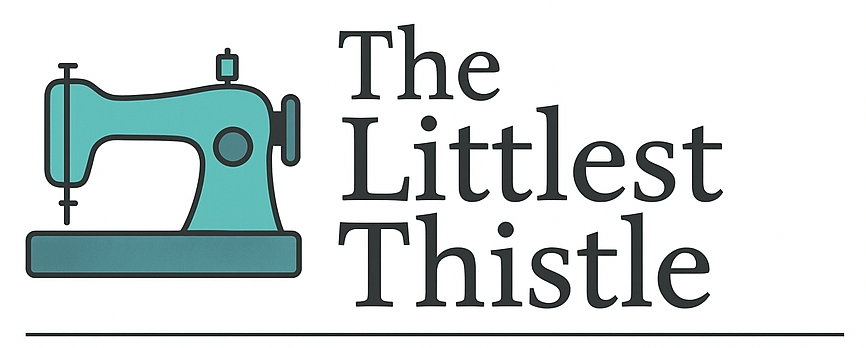Deep questions for teens are thought-provoking prompts designed to move beyond surface-level conversations and explore beliefs, values, and personal identity. They help foster self-awareness and critical thinking, building stronger connections between teenagers and the adults in their lives. A common concern is how to ask these questions without being intrusive; the key is genuine curiosity and creating a safe, non-judgmental space for honest conversation.
Key Benefits at a Glance
- Benefit 1: Builds trust and emotional safety, giving teens a secure space to share their true thoughts and feelings without fear of judgment.
- Benefit 2: Encourages profound self-discovery, helping teenagers clarify their personal values, passions, and goals for the future.
- Benefit 3: Develops crucial critical thinking and communication skills as teens practice articulating complex ideas and listening to other perspectives.
- Benefit 4: Strengthens family and mentor relationships by transforming routine interactions into meaningful conversations and shared moments.
- Benefit 5: Boosts emotional intelligence (EQ) and empathy, essential tools for navigating friendships, challenges, and future adult life.
Purpose of this guide
This guide is designed for parents, guardians, teachers, and mentors who want to forge deeper, more authentic connections with the teenagers in their lives. It directly addresses the challenge of moving past one-word answers and superficial chats to have truly meaningful discussions. You will learn how to use these questions to better understand a teen’s perspective, values, and dreams. This resource provides practical tips on timing, active listening, and avoiding common pitfalls like lecturing, ensuring your conversations build trust and support long-term personal growth.
Introduction
Last month, I found myself sitting across from my friend’s 16-year-old daughter, desperately trying to connect through a wall of one-word responses. “How was school?” led to “Fine.” “What did you do today?” got me “Nothing.” As someone who’s spent years in content strategy studying how to engage audiences, I realized I was asking all the wrong questions. That breakthrough moment taught me that the principles I use professionally—understanding your audience, creating compelling content, and fostering genuine engagement—apply just as powerfully to conversations with teenagers.
My background in content strategy and audience engagement has shown me that meaningful conversations happen when we move beyond surface-level interactions. Deep questions for teens aren’t just conversation starters; they’re tools for building authentic connections, developing critical thinking skills, and helping young people explore their identity during one of the most formative periods of their lives.
Why asking deep questions matters for teen development
Through my years of studying audience engagement, I’ve discovered that the same principles that create compelling content also foster meaningful relationships with teenagers. When we ask thoughtful questions, we signal that we value their perspectives and trust their ability to engage with complex ideas. This approach transforms the typical adult-teen dynamic from interrogation to genuine dialogue.
Use conversation starters during calm, shared moments—like family game night—to build trust and open dialogue: How to Plan a Perfect Family Game Night.
Research consistently shows that adolescents who engage in meaningful conversations develop stronger critical thinking skills, improved emotional intelligence, and better communication abilities. During my work with various teens, I’ve witnessed firsthand how the right questions can unlock surprising depth and maturity. One conversation about values led a seemingly disinterested 17-year-old to share her passion for environmental justice—a topic that became the foundation for her college application essays.
- Enhances critical thinking and problem-solving abilities
- Builds stronger emotional intelligence and self-awareness
- Improves communication skills and articulation
- Strengthens parent-teen relationships through meaningful connection
- Develops confidence in expressing complex thoughts and feelings
The teenage brain is uniquely positioned for this type of engagement. During adolescence, the prefrontal cortex—responsible for abstract thinking and moral reasoning—is rapidly developing. Deep questions provide the perfect exercise for these emerging cognitive abilities, helping teens practice articulating complex thoughts and exploring different perspectives.
Creating the right environment for deep conversations
My content strategy background has taught me that context matters as much as content. The same principle applies to conversations with teens—where and how you ask questions significantly impacts their willingness to open up. I’ve found that some of the most profound conversations happen during seemingly mundane activities: driving to soccer practice, walking the dog together, or cooking dinner side by side.
The key insight from my audience engagement experience is that teens, like any audience, respond better when they don’t feel like they’re being put on the spot. Creating a safe, non-judgmental environment starts with your own vulnerability. I remember sharing my own teenage struggles with a reluctant 15-year-old, which immediately shifted our dynamic from adult-questioning-teen to two people sharing experiences.
- Choose a comfortable, private space free from distractions
- Put away phones and devices to show full attention
- Start conversations during relaxed activities like walking or driving
- Use open body language and maintain appropriate eye contact
- Set a non-judgmental tone by sharing your own thoughts first
Physical environment matters, but emotional safety is paramount. Teens can sense when adults are fishing for specific answers or preparing to launch into lectures. The most successful conversations I’ve facilitated happened when teens felt genuinely heard rather than evaluated. This means resisting the urge to immediately offer solutions or share your own teenage stories unless they specifically ask.
Create time for a question of the day
One strategy I’ve implemented successfully with teens is establishing a regular “question of the day” routine. This approach removes the pressure of spontaneous deep conversations while building anticipation and trust over time. I’ve watched initially resistant teens transform into eager participants when they know these discussions are a regular, judgment-free part of their routine.
- Present one thoughtful question during a natural conversation moment
- Allow 30-60 seconds of thinking time without pressure to respond immediately
- Engage in open discussion without judgment or immediate advice-giving
The beauty of this system lies in its predictability and safety. Teens know what to expect, can prepare mentally if they choose, and begin to associate these moments with positive connection rather than uncomfortable interrogation. I’ve seen this approach work particularly well during family dinners or car rides, where the routine becomes naturally integrated into existing family time.
Personal identity and self discovery questions
In my experience with content strategy, I’ve learned that identity-focused content consistently generates the highest engagement. The same principle applies to conversations with teens—questions about identity, values, and self-perception create the most meaningful dialogue. These questions tap into the core developmental task of adolescence: figuring out who they are beyond their family roles and childhood identities.
I once asked a quiet 16-year-old, “When do you feel most authentic and true to yourself?” Her thoughtful response about feeling genuine during volunteer work revealed a passion for social justice that her parents had never known existed. This single question opened up months of rich conversations about values, career aspirations, and personal growth.
| Surface-Level Questions | Deep Questions | What It Reveals |
|---|---|---|
| How was school? | What moment today made you feel most like yourself? | Core identity and authentic experiences |
| Did you have fun? | What activity recently challenged you in a good way? | Growth mindset and personal development |
| Are you okay? | When do you feel most confident in who you are? | Self-esteem and personal strengths |
- What values do you think guide most of your decisions?
- If you could change one thing about how others see you, what would it be?
- What’s something you believe about yourself that others might not realize?
- When do you feel most authentic and true to yourself?
- What aspect of your personality are you still figuring out?
- If you had to describe your core identity in three words, what would they be?
- What’s a belief you hold that’s different from most of your friends?
- What do you think makes you uniquely you?
- When do you feel most misunderstood, and why?
- What’s something you’re proud of that others might not notice?
- How do you think you’ve changed in the past year?
- What’s one thing you hope never changes about who you are?
- If you could have a conversation with yourself from five years ago, what would you say?
- What’s something you do that feels completely natural to you?
- What role do you tend to play in your friend groups?
Each of these questions serves a specific purpose in helping teens articulate their emerging sense of self. The question about values, for instance, helps them recognize the internal compass that’s beginning to guide their decisions. Questions about authenticity encourage them to identify moments when they feel genuinely themselves, building self-awareness and confidence.
School and learning questions
My content strategy background has revealed that educational topics often unlock deeper conversations about values, aspirations, and intellectual curiosity. Rather than focusing on grades or performance, these questions explore teens’ relationship with learning itself. I’ve discovered that when we ask about genuine intellectual engagement rather than academic achievement, teens often reveal hidden passions and insights about their own learning processes.
- What’s something you learned recently that genuinely surprised you?
- If you could design your ideal learning environment, what would it look like?
- What subject challenges you in a way that feels rewarding?
- When do you feel most engaged and curious in school?
- What’s a question you have that no class seems to address?
- If you could teach a class on any topic, what would it be and why?
- What’s the difference between learning something and truly understanding it?
- How do you learn best when something is really difficult?
- What’s something you wish your teachers understood about how you learn?
- If grades didn’t exist, what would motivate you to learn?
- What’s a skill you think schools should teach but don’t?
- When has learning something completely changed how you see the world?
One particularly powerful question—”What’s a question you have that no class seems to address?”—once led a teen to share her curiosity about how social media affects mental health. This conversation evolved into discussions about digital citizenship, research skills, and eventually influenced her decision to pursue psychology. These questions help teens recognize their own intellectual curiosity and connect their formal education to their personal interests and future goals.
Future and goals oriented questions for teens
Drawing from my content strategy experience, I’ve learned that helping audiences envision their future selves creates powerful engagement and motivation. The same principle applies beautifully to conversations with teens. Future-oriented questions help young people connect their current choices to their long-term aspirations without creating overwhelming pressure about having everything figured out.
I remember asking a seemingly directionless 17-year-old, “What kind of impact do you want to have on the world?” Instead of the expected “I don’t know” response, he shared a detailed vision of creating technology that helps elderly people stay connected with their families. This question revealed both his compassionate nature and his interest in technology—insights that helped guide his college and career exploration.
- What kind of impact do you want to have on the world?
- If you knew you couldn’t fail, what would you attempt?
- What does success mean to you personally?
- What’s one goal you have that excites and scares you at the same time?
- How do you want to be remembered by the people who matter to you?
- What’s something you want to learn or master in the next few years?
- If you could solve one problem in the world, what would it be?
- What kind of person do you want to become?
- What’s a dream you have that you haven’t told many people about?
- How do you think your current choices are shaping your future?
- What’s something you want to experience before you’re 25?
- What legacy do you want to leave behind?
The key to asking these questions effectively is emphasizing exploration over certainty. Teens shouldn’t feel pressured to have definitive answers; instead, these conversations should feel like collaborative brainstorming sessions about possibilities. When approached with curiosity rather than expectation, future-focused questions help teens develop goal-setting skills and begin connecting their current experiences to their emerging adult identity.
Ethical and moral dilemma questions
My understanding of audience engagement has shown me that ethical dilemmas create some of the most compelling and thought-provoking content. This principle translates powerfully to conversations with teens, who are naturally grappling with developing their own moral compass. These questions provide safe opportunities to explore complex ethical reasoning without real-world consequences.
Strengthen family values through intentional traditions that encourage reflection and connection: Ultimate Guide to Summer Family Traditions.
I’ve found that ethical questions work best when presented as genuine dilemmas rather than tests with right answers. When I asked a group of teens, “Is it more important to be honest or to be kind?” the resulting discussion revealed sophisticated thinking about context, relationships, and competing values. These conversations help teens practice moral reasoning while revealing their developing ethical frameworks.
- When is it okay to break a rule, and when is it not?
- What would you do if you witnessed someone being treated unfairly?
- Is it more important to be honest or to be kind?
- What’s the difference between something being legal and something being right?
- How do you decide what’s right when different people you respect disagree?
- What responsibility do you have to help others?
- When, if ever, is it okay to lie?
- What would you do if standing up for what’s right meant losing friends?
- How do you balance your own needs with the needs of others?
- What makes someone a good person in your opinion?
The most important aspect of discussing ethical questions with teens is maintaining genuine curiosity about their reasoning rather than steering them toward predetermined conclusions. These conversations work best when adults share their own ethical struggles and demonstrate that moral reasoning is an ongoing process rather than a fixed set of rules.
Relationship and social questions
Social connections represent one of the most significant concerns for teenagers, making relationship-focused questions particularly engaging. My experience has shown that these discussions often reveal teens’ deepest values, fears, and aspirations about human connection. When we explore their relationships thoughtfully, we gain insight into their emotional intelligence and social development.
I once used the question “What makes you feel truly understood by someone?” with a teen who seemed socially confident but was struggling internally. Her response revealed that despite having many friends, she felt lonely because no one knew about her anxiety and academic pressure. This conversation opened the door to discussions about authentic friendship, vulnerability, and seeking support.
- What qualities do you value most in a friend?
- How do you handle conflict in your relationships?
- What’s something you wish your family understood better about you?
- When do you feel most supported by the people around you?
- What’s the hardest part about maintaining friendships?
- How do you know when to trust someone?
- What role do you play in your family dynamics?
- What’s something you’ve learned from a difficult relationship?
- How do you balance being yourself with fitting in?
- What makes you feel truly understood by someone?
- How do you show care for the people who matter to you?
- What’s something you wish you could change about how people interact with each other?
When teens share sensitive information about relationships, it’s crucial to maintain confidentiality and avoid immediately jumping into problem-solving mode. These questions work best when they feel like collaborative exploration of social dynamics rather than opportunities for adult intervention or advice-giving.
Philosophical and abstract thinking questions
In my content strategy work, I’ve found that abstract questions often generate the most thought-provoking responses because they invite creative thinking without predetermined answers. This principle applies beautifully to conversations with teens, who are developing their capacity for abstract reasoning and philosophical thinking. I’ve been consistently amazed by the depth and originality of teens’ responses to these questions.
- What do you think is the purpose of life?
- If you could know one absolute truth about the universe, what would you want to know?
- What makes something beautiful to you?
- Do you think people are basically good or basically selfish?
- What’s the difference between being smart and being wise?
- If you could live forever, would you want to? Why or why not?
- What do you think happens to our thoughts and memories when we die?
- Is it better to be feared or loved? Why?
- What’s something that everyone seems to accept that you question?
- What do you think makes life meaningful?
The key to making abstract concepts relatable to teens is connecting them to their everyday experiences. For example, when discussing the nature of beauty, I might ask them to think about a song, artwork, or moment in nature that moved them. This approach helps teens engage with big ideas through concrete examples from their own lives, making philosophical thinking accessible and personally meaningful.
Scenario questions and hypothetical situations
My background in content creation has shown me that hypothetical scenarios often bypass people’s defenses and allow for more authentic expression. This insight has proven invaluable in conversations with teens, who sometimes feel more comfortable exploring ideas through imaginative scenarios than direct personal questions. Scenario-based questions reveal values, decision-making processes, and creative thinking in uniquely engaging ways.
- If you could have dinner with any three people, living or dead, who would you choose and why?
- If you found a wallet with $500 cash and no ID, what would you do?
- If you could go back and give your younger self one piece of advice, what would it be?
- If you had to choose between being extremely intelligent or extremely kind, which would you pick?
- If you could instantly master any skill, what would it be?
- If you were invisible for one day, how would you spend it?
- If you could read minds for a week, would you want to?
- If you had to live in a different time period, when would you choose?
- If you could change one thing about the world, what would it be?
- If you were stranded on a desert island and could only bring three items, what would they be?
- If you could have any superpower, what would it be and how would you use it?
- If you knew the world would end in one year, how would you spend that time?
I’ve learned to craft custom scenarios based on teens’ specific interests and experiences. For a teen interested in music, I might ask, “If you could write one song that everyone in the world would hear, what message would it contain?” These personalized scenarios often lead to the most revealing and meaningful conversations because they connect abstract thinking to personal passions and values.
Emotional intelligence questions for teen development
My background in audience engagement has highlighted the crucial importance of emotional connection in meaningful communication. With teens, developing emotional intelligence through thoughtful questions helps them build self-awareness, empathy, and emotional regulation skills that will serve them throughout their lives. These conversations require particular sensitivity and patience.
Pair deep conversations with creative activities—like sewing together—to create safe spaces for expression: Family Project: Sewing Pajamas Together.
I remember asking a typically reserved 16-year-old, “What emotion do you find hardest to deal with?” Her honest response about struggling with anger led to a series of conversations about healthy emotional expression, stress management, and self-compassion. These discussions became some of our most valuable interactions, helping her develop emotional vocabulary and coping strategies.
- What emotion do you find hardest to deal with, and why?
- How do you usually handle stress or overwhelming feelings?
- What’s something that always makes you feel better when you’re down?
- When do you feel most emotionally balanced and centered?
- How do you know when someone else is struggling emotionally?
- What’s the best way someone can support you when you’re upset?
- How has your relationship with your emotions changed as you’ve gotten older?
- What’s something that makes you feel deeply grateful?
- How do you process disappointment or failure?
- What emotion do you think you’re best at managing?
- When do you feel most empathetic toward others?
- What’s something that brings you genuine joy?
When approaching emotional topics with teens, it’s essential to proceed with extra caution and respect their boundaries. If a teen shares something concerning about their emotional state, focus on listening and supporting rather than immediately trying to fix or analyze. These conversations work best when teens feel heard and validated rather than diagnosed or corrected.
Thought provoking questions that are fun and lighthearted
From my experience in content strategy, I’ve learned that humor and playfulness often create the best entry points for deeper conversations. With teens who might be resistant to serious topics, these lighter questions can serve as a bridge to more meaningful dialogue. The beauty of these questions lies in their ability to reveal profound insights through seemingly simple scenarios.
- If you could be any fictional character for a day, who would you choose?
- What’s the weirdest thing you believed as a little kid?
- If you could have any animal as a pet, regardless of practicality, what would it be?
- What’s your most unpopular opinion about something totally unimportant?
- If you could instantly become an expert in any random skill, what would be the most fun?
- What’s something that makes you laugh every single time?
- If you could redesign the human body, what would you change?
- What’s the most interesting conspiracy theory you’ve heard, even if you don’t believe it?
- If you could add one rule that everyone in the world had to follow, what would it be?
- What’s something you do that you think is totally normal but others find weird?
I once asked a particularly guarded teen about the weirdest thing she believed as a child, which led to laughter about her conviction that clouds were made of cotton candy. This seemingly silly conversation evolved into a beautiful discussion about imagination, growing up, and what we lose and gain as we mature. These lighter questions often provide the most surprising insights into teens’ personalities and perspectives.
How to listen and respond to teens answers
My years of studying audience engagement have taught me that how we listen is often more important than the questions we ask. With teens, effective listening requires setting aside our adult urge to immediately respond with advice, corrections, or our own experiences. The goal is to create space for teens to fully express themselves and feel genuinely heard.
I learned this lesson the hard way when I interrupted a teen’s thoughtful response about friendship challenges to share my own high school experience. Her immediate withdrawal taught me that teens need to feel their perspectives are valued before they’re interested in adult input. Now I practice what I call “generous listening”—giving teens my complete attention without planning my response.
- Give your full attention without multitasking or checking devices
- Ask follow-up questions that show genuine curiosity about their perspective
- Reflect back what you heard to confirm understanding before responding
- Share your own related experiences only after they’ve fully expressed themselves
- Avoid immediate problem-solving unless they specifically ask for advice
The most powerful listening tool I’ve discovered is the follow-up question. Instead of immediately sharing my thoughts, I might ask, “What made you realize that?” or “How did that change your perspective?” These questions demonstrate genuine interest while encouraging teens to explore their thoughts more deeply. This approach often leads to insights that surprise both the teen and the adult.
| Helpful Responses | Unhelpful Responses | Impact |
|---|---|---|
| That’s really interesting, tell me more | You shouldn’t feel that way | Encourages vs. shuts down sharing |
| I can see why you’d think that | That’s wrong/silly | Validates vs. dismisses perspective |
| What made you realize that? | When I was your age… | Explores vs. redirects to adult experience |
| That sounds challenging | Just get over it | Shows empathy vs. minimizes feelings |
Remember that teens are often sharing thoughts they’re still developing. Our role is to provide a safe space for that exploration rather than immediately evaluating or correcting their thinking. The most meaningful conversations happen when teens feel they can think out loud without judgment or immediate adult intervention.
Adapting questions for different teen personalities
Drawing from my content strategy background, I’ve learned that effective audience engagement requires understanding and adapting to different personality types and communication preferences. This principle applies powerfully to conversations with teens, who have distinct personalities, interests, and communication styles that affect how they respond to different types of questions.
My experience has shown me that a question that energizes an outgoing teen might overwhelm a shy one, while an analytical teen might crave the logical scenarios that bore a more creative personality. The key is observing how individual teens respond and adjusting your approach accordingly, just as I would tailor content for different audience segments.
| Personality Type | Question Approach | Example Modification |
|---|---|---|
| Shy/Reserved | Start with less personal topics, allow extra thinking time | Instead of ‘What are you passionate about?’ try ‘What subject interests you most right now?’ |
| Outgoing/Social | Use questions about relationships and social dynamics | Focus on ‘How do you think your friends see you?’ or ‘What role do you play in your friend group?’ |
| Analytical/Logical | Present hypothetical scenarios and ethical dilemmas | Frame as ‘If you had to choose between X and Y, what factors would you consider?’ |
| Creative/Artistic | Use imaginative and abstract questions | Ask ‘If you could create something that expressed who you are, what would it be?’ |
For shy teens, I’ve found success starting with questions about external interests or observations before moving to more personal topics. Creative teens often respond beautifully to metaphorical or imaginative questions, while analytical teens appreciate scenarios that allow them to work through logical processes. The goal is meeting each teen where they are rather than forcing them to adapt to a one-size-fits-all approach.
Frequently Asked Questions
What are the best deep questions to ask teenagers about life?
Some of the best deep questions for teenagers about life include “What do you believe is the purpose of your life?” and “If you could change one thing about the world, what would it be and why?” These questions encourage teens to ponder their existence and values. They can spark meaningful discussions and help young people gain perspective on their experiences.
How do deep questions help teens with self-reflection and personal growth?
Deep questions prompt teens to examine their thoughts, emotions, and experiences, fostering self-awareness and introspection. This process aids personal growth by helping them identify strengths, weaknesses, and areas for improvement. Ultimately, it builds resilience and a stronger sense of self.
What are some thought-provoking questions about identity and self-discovery for teens?
Thought-provoking questions for teens on identity might include “Who are you when no one is watching?” and “What experiences have shaped who you are today?” These encourage exploration of personal identity and self-discovery. They help teens understand their unique traits and how they fit into the world.
How should parents approach asking deep questions to teenagers?
Parents should approach asking deep questions with openness, patience, and without judgment to create a safe space for discussion. Start with lighter topics and gradually move to deeper ones, timing conversations when teens are relaxed. Listening actively and sharing personal insights can make the interaction more engaging and mutual.
What are deep questions for teens about their future and dreams?
Deep questions about the future for teens could be “Where do you see yourself in 10 years, and what steps will you take to get there?” or “What dream scares you the most, and why?” These questions inspire teens to envision their aspirations and confront potential obstacles. They promote goal-setting and long-term planning.
What deep questions can help teenagers explore their values and beliefs?
Questions like “What values are most important to you, and how do they influence your decisions?” or “Have your beliefs changed over time, and what caused that shift?” can help teens explore their values and beliefs. These encourage critical thinking about ethics and personal principles. They aid in forming a coherent worldview.




